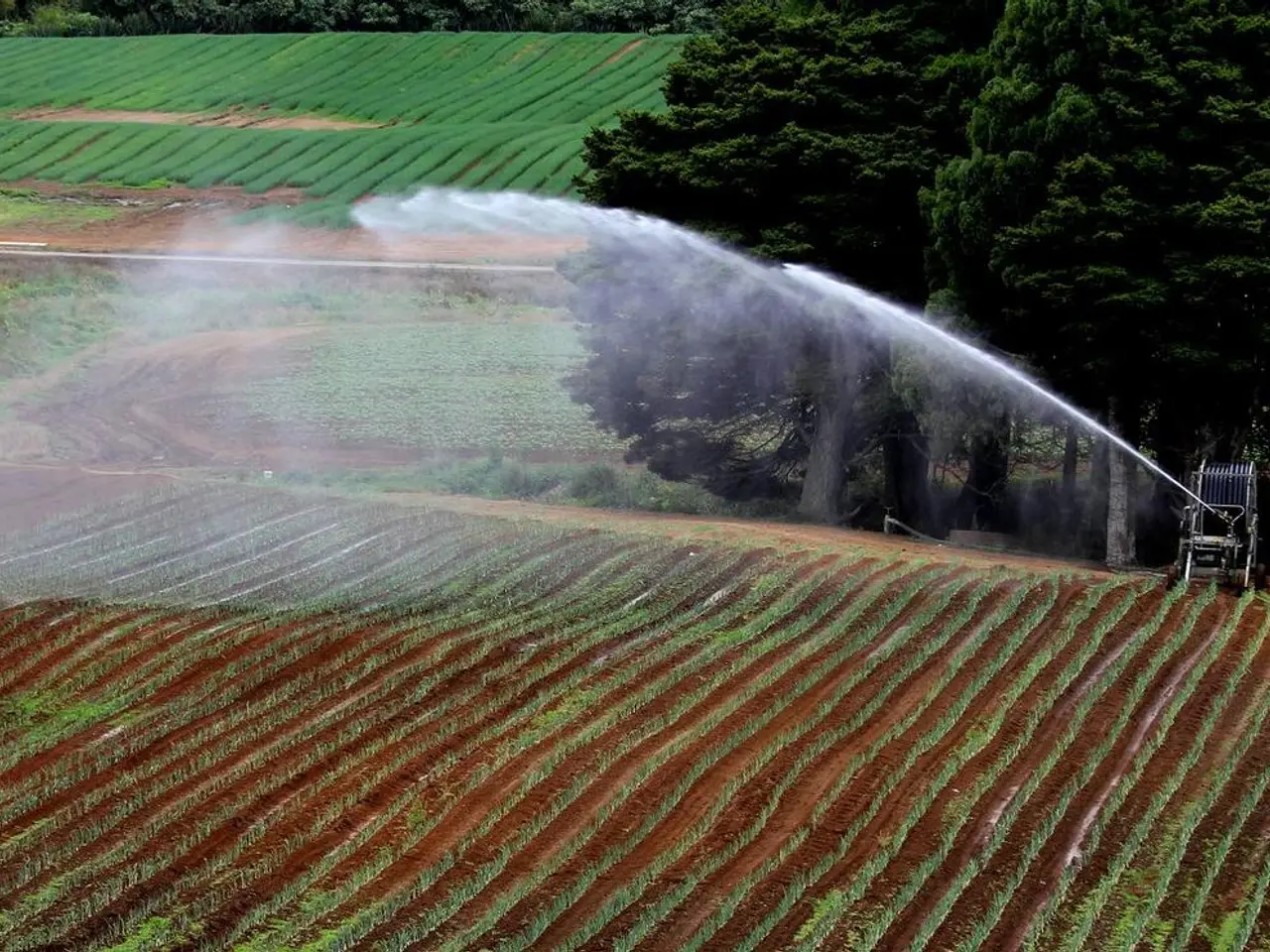Boosting Agriculture Exports to a Potential Rs 20 Lakh Crore Through Smart Technology, Processing, and Branding: According to Piyush Goyal
**India Embraces Modern Agriculture: Boosting Exports and Sustainability**
In a bid to strengthen India's agricultural sector and expand its global footprint, Union Minister Piyush Goyal has highlighted the potential of innovative practices and technologies.
Recently, non-traditional items like litchi, jamun, pineapple, and bottle gourd have been exported to markets such as the UK, Doha, and Dubai, marking India's growing global agricultural presence.
One such technology that could revolutionise Indian agriculture is drip irrigation. This system, which delivers water directly to the roots of plants, offers several benefits.
Firstly, drip irrigation reduces water waste by up to 60%, making Indian agriculture more resilient to climate variability. Secondly, it increases crop yields, as seen in a Bengaluru garden where a 25% increase in vegetable yield was observed. Thirdly, drip irrigation reduces energy costs when combined with energy-efficient pumps. Lastly, it minimises soil erosion and reduces weed growth, promoting more sustainable farming practices.
Organic certification is another key factor in enhancing India's agricultural exports and farm sustainability. Organic produce is in high demand globally, offering a niche market for Indian farmers. By adopting organic methods, farmers can tap into this growing market and increase their export potential.
The Indian government is also enhancing certification norms for organic produce with blockchain technology, ensuring trust and traceability in the market. This can boost consumer confidence in Indian organic products.
To support these initiatives, the government is offering subsidies for drip systems and promoting organic farming through certification and market development. The formation of a Turmeric Board and the near-doubling of coffee exports in recent years are testament to these efforts.
However, the Minister emphasised the need for further modernisation of agriculture practices. He called for agri-entrepreneurs to partner with farmers and invest in better packaging, organic certification, and product design for global market competitiveness.
Piyush Goyal also highlighted the need for a resilient and self-reliant farm ecosystem. He urged stakeholders to adopt global best practices in intercropping, horticulture, and floriculture.
The Minister acknowledged the need for further effort to fully realise the potential of the spice sector, with initiatives like the International Year of Millets helping to revive interest in India's traditional grains and position them as climate-resilient, nutritious alternatives.
In addition, PM-Kisan provides financial support to farmers, and subsidy-backed fertiliser supply is available. The Agriculture Infrastructure Fund and the promotion of Farmer Producer Organisations (FPOs) are being used to drive mechanisation and post-harvest infrastructure.
By integrating these strategies, India can not only improve its agricultural sustainability but also increase its competitiveness in the global market, potentially reaching the target of Rs 20 lakh crore in agricultural exports.
The transformation of India's agriculture is both challenging and inspiring, as the Minister noted, with the potential to significantly improve the lives of millions of farmers and contribute to a more sustainable and self-reliant India.
The integration of technology, such as drip irrigation and blockchain, could significantly enhance Indian agriculture's resilience to the climate and boost its global competitiveness in exports. By adopting innovative practices, partnering with agri-entrepreneurs, and focusing on organic certification, India can tap into the demand for sustainable and organic produce on a global scale, potentially reaching the target of Rs 20 lakh crore in agricultural exports.




